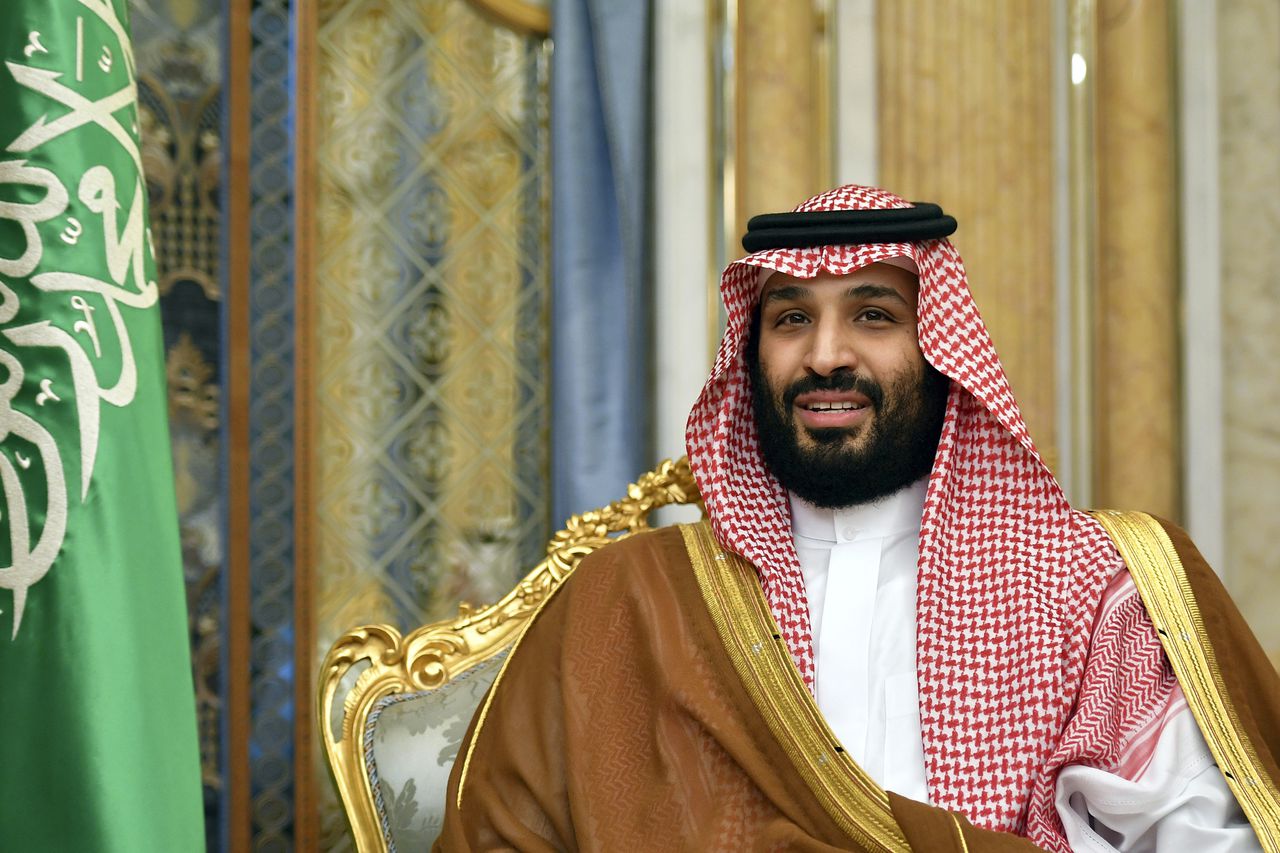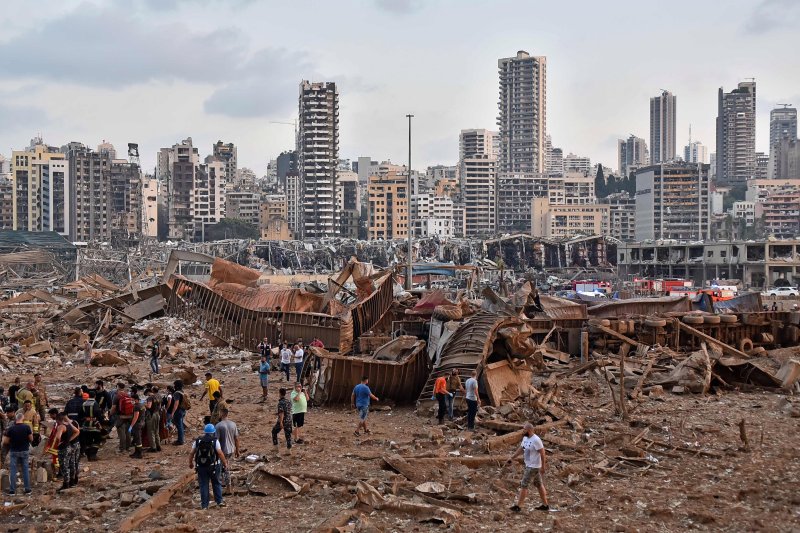
WASHINGTON (AP) -- AAMER MADHANI and ELLEN KNICKMEYER -- President Joe Biden is leaning towards making a visit to Saudi Arabia — a trip that would likely bring him face-to-face with the Saudi crown prince he once shunned as a killer. The White House is weighing a visit to Saudi Arabia that would also include a meeting of the leaders of the Gulf Cooperation Council countries (Bahrain, Kuwait, Oman, Qatar, Saudi Arabia and United Arab Emirates) as well as Egypt, Iraq and Jordan, according to a person familiar with White House planning. The person spoke on the condition of anonymity to discuss the yet-to-be finalized plans. It comes at a moment when overriding U.S. strategic interests in oil and security have pushed the administration to rethink the arms-length stance that Biden pledged to take with the Saudis as a candidate for the White House.
Any meeting between Biden and de facto Saudi ruler Prince Mohammed bin Salman during a Biden visit to the Middle East could offer hope of some relief for U.S. gasoline consumers, who are wincing as a squeaky-tight global oil supply drives up prices. Biden would be expected to meet with Prince Mohammed, who is often referred to by his initials, MBS — if the Saudi visit happens, according to the person familiar with the deliberations. Such a meeting could also ease one of the most fraught and uncertain periods in a partnership between Saudi Arabia, the world’s top oil exporter, and the United States, the world’s top economic and military power, that has stood for more than three-quarters of a century. But it also risks a public humbling for the U.S. leader, who in 2019 pledged to make a “pariah” of the Saudi royal family over the 2018 killing and dismemberment of U.S.-based journalist Jamal Khashoggi, a newspaper critic of many of the brutal ways that Prince Mohammed operates.
by Source Naharnet — The World Bank has extended its Country Partnership Framework (CPF) with Lebanon by one additional year “to advance …

By Hussain Abdul-Hussain, a fellow at the Foundation for Defense of Democracies and a former managing editor at the Daily Star. -- foreignpolicy -- Lebanon has become a failed state and a global source of narcotics, terrorism, and, once again, a growing number of refugees. Washington, stung by its failure to spread democracy in the Middle East and tiptoeing around everything connected to Iran, has limited its Lebanon policy to crisis management. But Lebanon’s parliamentary elections on May 15 saw the first stirrings of a potential coalition capable of checking—and perhaps eventually dislodging—Hezbollah and its iron grip over the country. Hezbollah and its allies lost their parliamentary majority and now face the biggest opposition since 2009—a loose coalition of the Lebanese Forces party and various independents with as many as 60 out of a total 128 seats. Although the reconstituted legislature reelected a Hezbollah ally, Amal party leader Nabih Berri, as speaker of parliament on Tuesday, it did so with only the slimmest of majorities—65 out 128 votes, compared to 98 in 2018. Berri’s tally would not have been possible without votes controlled by Druze leader Walid Jumblatt, who played kingmaker. Free Patriotic Movement leader Elias Bou Saab, a Christian ally of Hezbollah, also won 65 votes for deputy speaker. But his contender, independent Ghassan Skaf, picked up 60 votes, showing the size of a potential opposition coalition. At the core of this bloc is the Lebanese Forces, a former Christian militia-turned-political party whose 20 seats put it ahead of Hezbollah’s 13.
While Jumblatt has been loosely aligned with Hezbollah in recent years, the right kind of pressure and incentives could still throw a wrench into Hezbollah’s plans to control the Lebanese government. That’s because Lebanon’s economic collapse is giving Hezbollah’s opponents a new sense of urgency—even after losing the election. The anti-Hezbollah bloc has called on the Shiite party’s extraconstitutional militia, roughly 30,000 fighters closely allied with Iran, to disband—just as the Lebanese Forces did when it surrendered its arms at the end of Lebanon’s civil war in 1991. Since disbanding its military wing, the Lebanese Forces have remained a highly organized and potent political movement, demonstrating that a political party without a militia attached can succeed in Lebanese politics.
source: nna-leb.gov — وطنية – أعلن النائب فريد هيكل الخازن، في تصريح بعد انتخاب رئيس المجلس النيابي “أن لا اكثرية ولا أقلية في …
Khazen History


Historical Feature:
Churches and Monasteries of the Khazen family

St. Anthony of Padua Church in Ballouneh
Mar Abda Church in Bakaatit Kanaan
Saint Michael Church in Bkaatouta
Saint Therese Church in Qolayaat
Saint Simeon Stylites (مار سمعان العامودي) Church In Ajaltoun
Virgin Mary Church (سيدة المعونات) in Sheilé
Assumption of Mary Church in Ballouneh
1 - The sword of the Maronite Prince
2 - LES KHAZEN CONSULS DE FRANCE
3 - LES MARONITES & LES KHAZEN
4 - LES MAAN & LES KHAZEN
5 - ORIGINE DE LA FAMILLE
Population Movements to Keserwan - The Khazens and The Maans
ما جاء عن الثورة في المقاطعة الكسروانية
ثورة أهالي كسروان على المشايخ الخوازنة وأسبابها
Origins of the "Prince of Maronite" Title
Growing diversity: the Khazin sheiks and the clergy in the first decades of the 18th century
Historical Members:
Barbar Beik El Khazen [English]
Patriach Toubia Kaiss El Khazen(Biography & Life Part1 Part2) (Arabic)
Patriach Youssef Dargham El Khazen (Cont'd)
Cheikh Bishara Jafal El Khazen
Patriarch Youssef Raji El Khazen
The Martyrs Cheikh Philippe & Cheikh Farid El Khazen
Cheikh Nawfal El Khazen (Consul De France)
Cheikh Hossun El Khazen (Consul De France)
Cheikh Abou-Nawfal El Khazen (Consul De France)
Cheikh Francis Abee Nader & his son Yousef
Cheikh Abou-Kanso El Khazen (Consul De France)
Cheikh Abou Nader El Khazen
Cheikh Chafic El Khazen
Cheikh Keserwan El Khazen
Cheikh Serhal El Khazen [English]
Cheikh Rafiq El Khazen [English]
Cheikh Hanna El Khazen
Cheikha Arzi El Khazen
Marie El Khazen